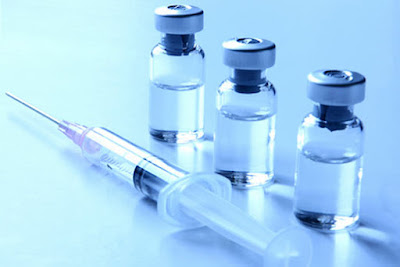Are you suffering from some health issues and suspected of a thyroid disorder? If so, you can schedule your appointment with one of the best thyroid expert doctors in NJ and get a consultation for the required tests and treatment. Because leaving the signs or minor health issues unattended can worsen your condition.
Are you wondering about the early warning signs of thyroid disorder? Then, continue reading to learn the top-five signs that indicate you have thyroid problems.
1. Fatigue
It’s common for people to feel fatigued once in a while. But the fatigue experienced by a person with hypothyroidism or other thyroid disorder is different. If you are feeling tired on any regular day, you can fix it by getting a good night's sleep. But it’s not enough to fix fatigue caused due to thyroid problems.
This health condition can be hard to discern if it occurs in middle-aged women. This is because fatigue is also a common symptom of menopause. In addition, many women experience unresolved symptoms of menopause even after taking estrogen. This might indicate that they are suffering from an undiagnosed thyroid disorder.
2. Weight Gain
The thyroid gland plays a significant role in maintaining your body weight. This is because it regulates your metabolism. So, if there exist any problems with your thyroid, it can affect your metabolism process.
Measuring a patient's basal metabolic rate (BMR) can help identify a person suffering from a thyroid disorder. If a low BMR score is observed, it can indicate hypothyroidism. Many people with hypothyroidism experience unexpected and unnoticed weight gain. And severe hypothyroidism can lead to a dramatic increase in body weight. If you also notice sudden changes in your body weight, you should see a thyroid specialist in NJ and consult him about your health issue.
3. Weight Loss
Problems with your thyroid can not only be responsible for additional weight gain but can also lead to weight loss. Unlike hypothyroidism, a condition that occurs when your thyroid gland does not perform properly; however, hyperthyroidism occurs when the thyroid is overactive.
As the name indicates, hyperthyroidism can lead to higher BMR results than normal. How much weight you will lose depends on the severity of your condition. If the thyroid is extremely overactive, it will use up more calories as compared to a healthy-functioning thyroid. And if a person fails to feed new caloric requirements, he can end up with severe weight loss. Some people with hyperthyroidism gain weight despite the fact they have an overactive thyroid. Though other factors equally play a role in controlling your body weight, the thyroid may be an important indicator.
4. Irregular Heart Rate
The health of your thyroid is linked to your cardiac health as well. For example- hypothyroidism can lead to an insufficient amount of thyroid hormone that can, in turn, cause a slower heart rate. If left untreated, inadequate thyroid hormone can lead your arteries to lose elasticity and cause high blood pressure. In addition, it can lead to higher cholesterol levels.
On the other hand, people with hyperthyroidism can experience an increased heart rate. This happens due to too much production of thyroid hormone. Whatever the reason, if you are feeling this sign, don’t hesitate to see your healthcare provider. Get the required treatment on time before it makes your condition worse.
5. Sensitivity to Heat
It’s another common warning sign of an overactive thyroid. As already discussed, hyperthyroidism causes your metabolism to go up and use more calories. This doesn’t end up leading to a change in body weight only. But it can also lead to overproduction of thyroxine and make you feel more sensitive to heat. If you are also experiencing heat sensitivity, it’s time to book your appointment with thyroid expert doctors in NJ.












